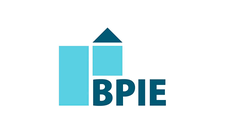Search eceee proceedings
Policy dialogue programmes on energy efficiency in transition countries – how to make it a success
Panel: 2. Policy: governance, design, implementation and evaluation challenges
This is a peer-reviewed paper.
Authors:
Nigel Jollands, European Bank for Reconstruction and Development (EBRD), United Kingdom
Klemens Leutgöb
Abstract
International Financial Institutions have long understood the need to incorporate energy efficiency policy dialogue into their investment activities. Despite this, little work has been done to evaluate the impact of energy efficiency policy dialogue in transition countries and to draw generic conclusions. Based on an evaluation of policy results and practical experience gathered in the field by the EBRD this paper addresses the question: How to achieve strong, long-lasting energy efficiency policy outcomes in transition countries? Specifically, the paper will present a conceptual framework that emphasises 5 critical elements:
i. A systematic approach is required where interventions are planned within the broader strategic context, and implemented at the right place and the right time.
ii. The importance of high-quality secondary legislation and other implementation procedures (such as technical standards, support tools etc.) to implement primary legislation.
iii. Enforcement procedures need specific attention in transition countries.
iv. The need to consider the institutional setting related to energy efficiency to ensure policy longevity.
v. The mutual learning process needed in policy development. Only if the donor has learned something new during the process, we can assume that the peculiarities of the recipient country have been fully captured.
Downloads
Download this presentation as pdf: 2-257-17_Jollands_presentation.pdf
Download this paper as pdf: 2-257-17_Jollands.pdf
Panels of
1. Foundations of future energy policy
2. Policy: governance, design, implementation and evaluation challenges
4. Mobility, transport, and smart and sustainable cities
5. Buildings and construction technologies and systems
6. Buildings policies, directives and programmes
7. Appliances, products, lighting and ICT
8. Monitoring and evaluation: building confidence and enhancing practices























